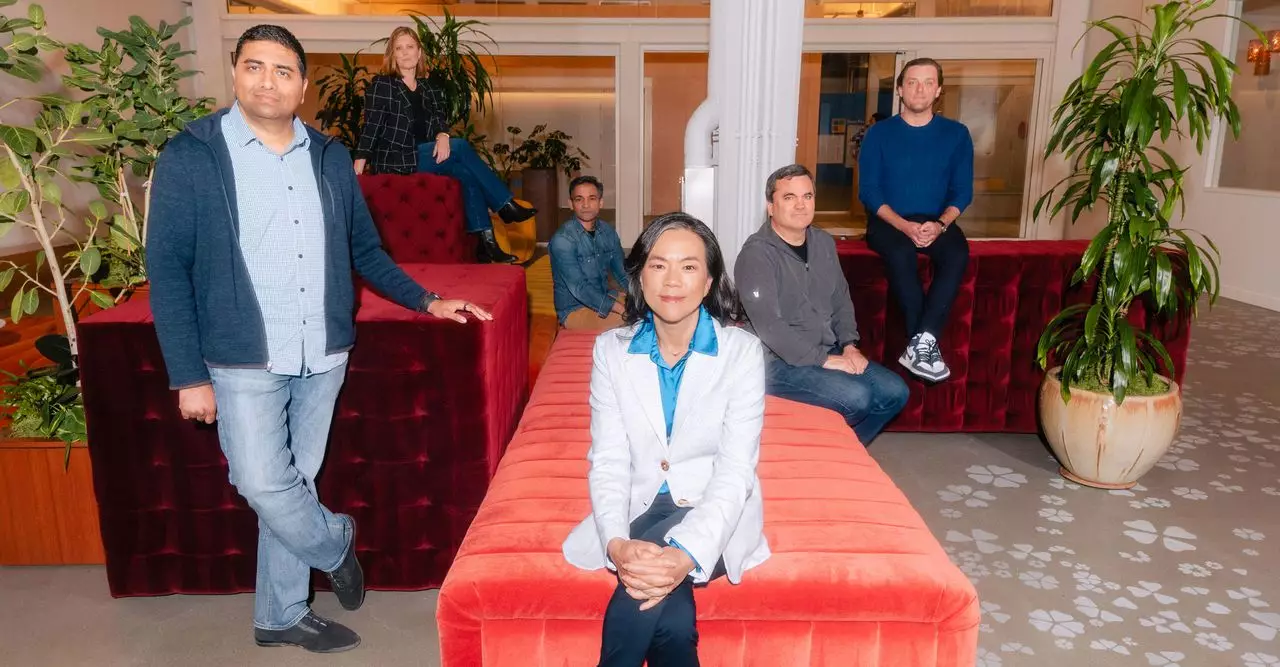In the current landscape of artificial intelligence (AI), the tension between innovation and profitability is palpable. For Google, a company that has historically thrived on advertising revenue, the challenge lies in capitalizing on advancements in AI while keeping user engagement high. The Gemini application represents a new frontier in this endeavor, yet its financial success remains uncertain—especially since the public is reluctant to pay directly for AI features. Like many tech giants, Google adopts a familiar model: provide services for free in exchange for user data and engagement. This approach has become somewhat of a tech industry standard, with Google at the forefront, yet it raises questions about sustainability.
The data tells a compelling story: OpenAI’s ChatGPT has amassed an impressive 600 million global installs, starkly overshadowing Google’s mere 140 million. This disparity highlights a critical concern for Google as it enters a hyper-competitive AI market filled with emerging players like Claude, Copilot, and Grok. Each competitor brings its own strengths and monetary backing, forcing Google to rethink its strategies or risk losing relevance.
The Financial Strain of AI Development
AI development isn’t just a technical challenge; it’s an expensive endeavor. With billions already invested by various companies, including Google, the pressure to deliver returns is immense. This investment goes beyond fiscal figures—it includes vast energy resources, posing an environmental dilemma that has yet to be adequately addressed by the industry.
Despite these significant challenges, firms remain optimistic, citing ongoing efficiencies gained in AI operations as a silver lining. However, the reality is more complex. Many industries are grappling with how generative AI can both serve the user and make economic sense. Google faces an additional hurdle: anticipated losses in search ad revenue due to potential antitrust actions. Even analysts recognize that upcoming legal landscapes might further strain Google’s financial track.
The Strain of Competition and Internal Dynamics
Underneath the glossy press releases and ambitious projections lies a troubling environment within Google. Employees report an atmosphere charged with anxiety over job security. Overtime isn’t just a recommendation; it’s often presented as essential for success. The narrative from executives, including Google co-founder Sergey Brin, suggests that long hours will yield higher productivity in this AI arms race. This kind of rhetoric is concerning, as it hints at systemic issues of burnout and employee dissatisfaction.
Reports circulating among current and former employees reveal a disquieting trend—unease permeates the corridors of Google. The imperatives set forth by executives seem to clash with employee well-being. Moreover, the pervasive fear of layoffs looms large, prompting younger professionals to question their long-term prospects within the organization.
The Promise and Peril of Generative AI
Generative AI undoubtedly holds transformative potential. Even governments that traditionally regulate tech firms are increasingly warming to its capabilities. Google DeepMind’s Demis Hassabis is driven by an ambitious vision of creating artificial general intelligence (AGI), a system that can perform complex tasks mirroring human intelligence. Yet, this ambition comes with its own complexities.
OpenAI’s recent developments, exemplified by its Operator service capable of performing tasks usually assigned to humans—such as filling forms—illustrate both promise and limitations. As it stands, this agentic AI requires significant human oversight, revealing reliability issues that must be solved before these technologies can be seamlessly integrated into our daily lives. Meanwhile, Google’s roadmap for integrating ‘agentic’ features into its own platforms raises expectations, yet the path to success is littered with complexities.
The Balance of Innovation and Caution
As Google seeks to embed AI further into daily life—that is, transforming tools from meal planners to virtual life coaches—managing user expectations while minimizing blunders is critical. The incident that occurred during the Super Bowl campaign, where Gemini erroneously claimed that gouda constitutes a majority of global cheese consumption, serves as a cautionary tale. Such missteps can undermine trust and shake user confidence in the technology.
Google’s CEO Sundar Pichai has publicly committed to a cautious approach. By emphasizing careful improvements over rushed deployments, he appears to be calibrating a strategy that balances ambition with practicality. However, the pressure to accelerate innovation against the backdrop of fierce competition hints that even caution has its limits. Google may find itself in a precarious position: leading the charge in AI yet constantly playing catch-up in delivering reliable, user-friendly experiences. The innovation race continues, but at what cost?

